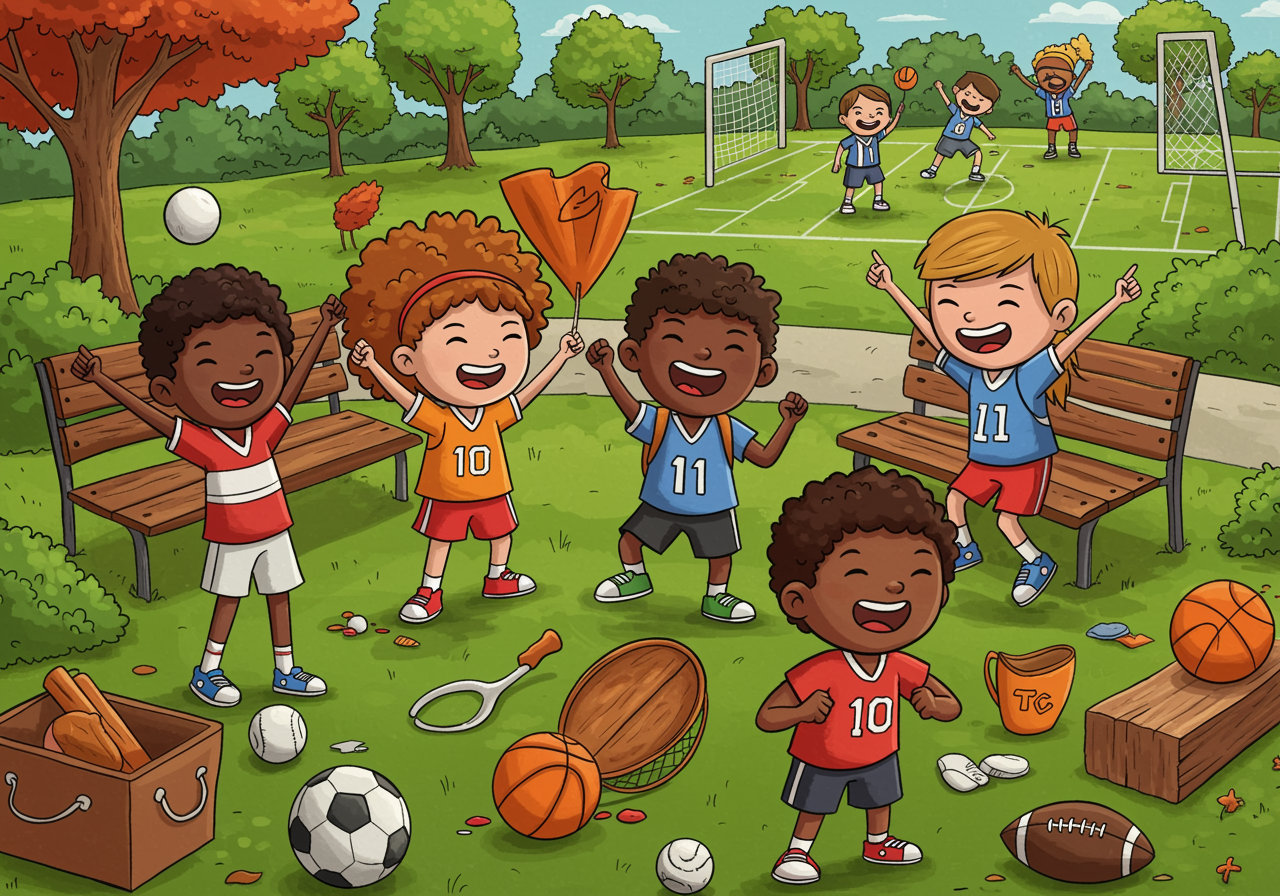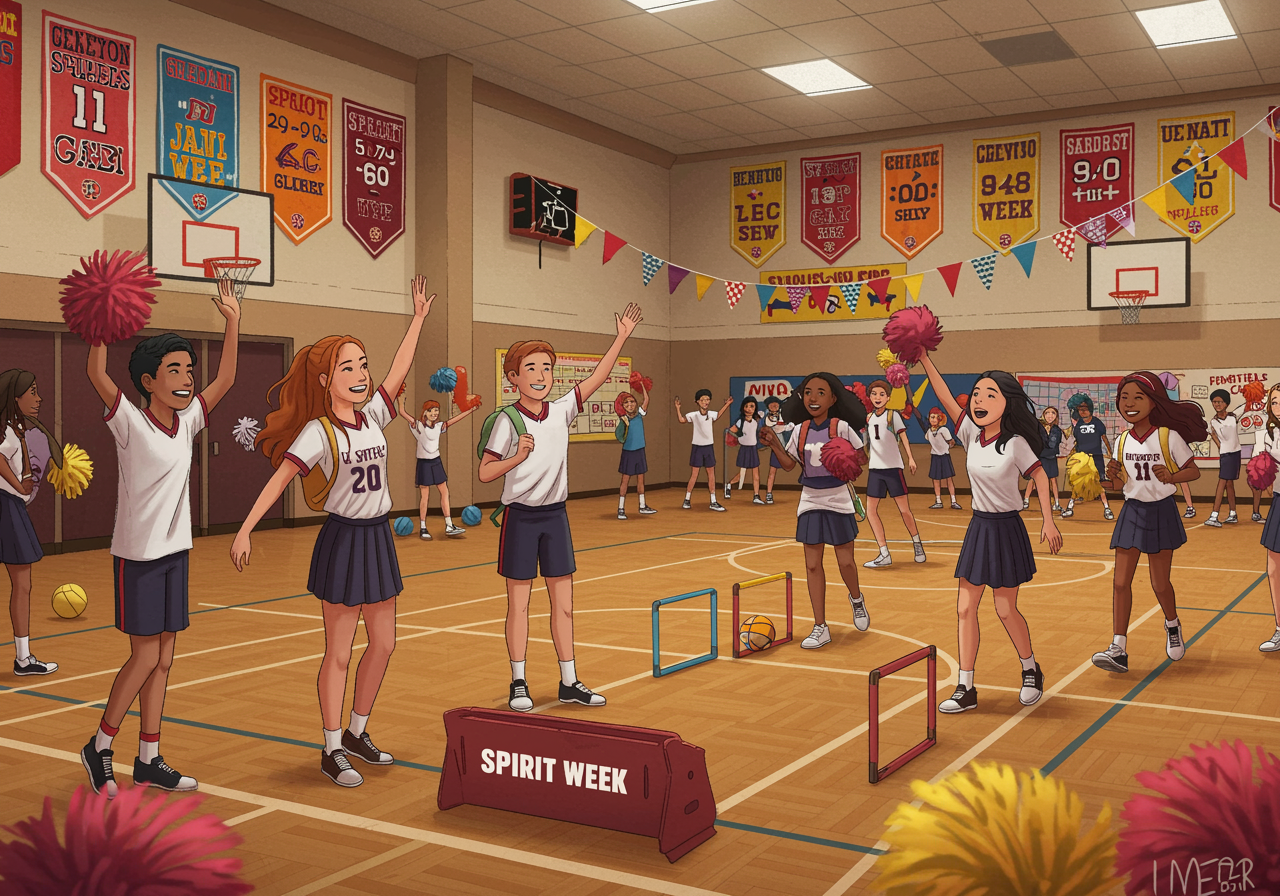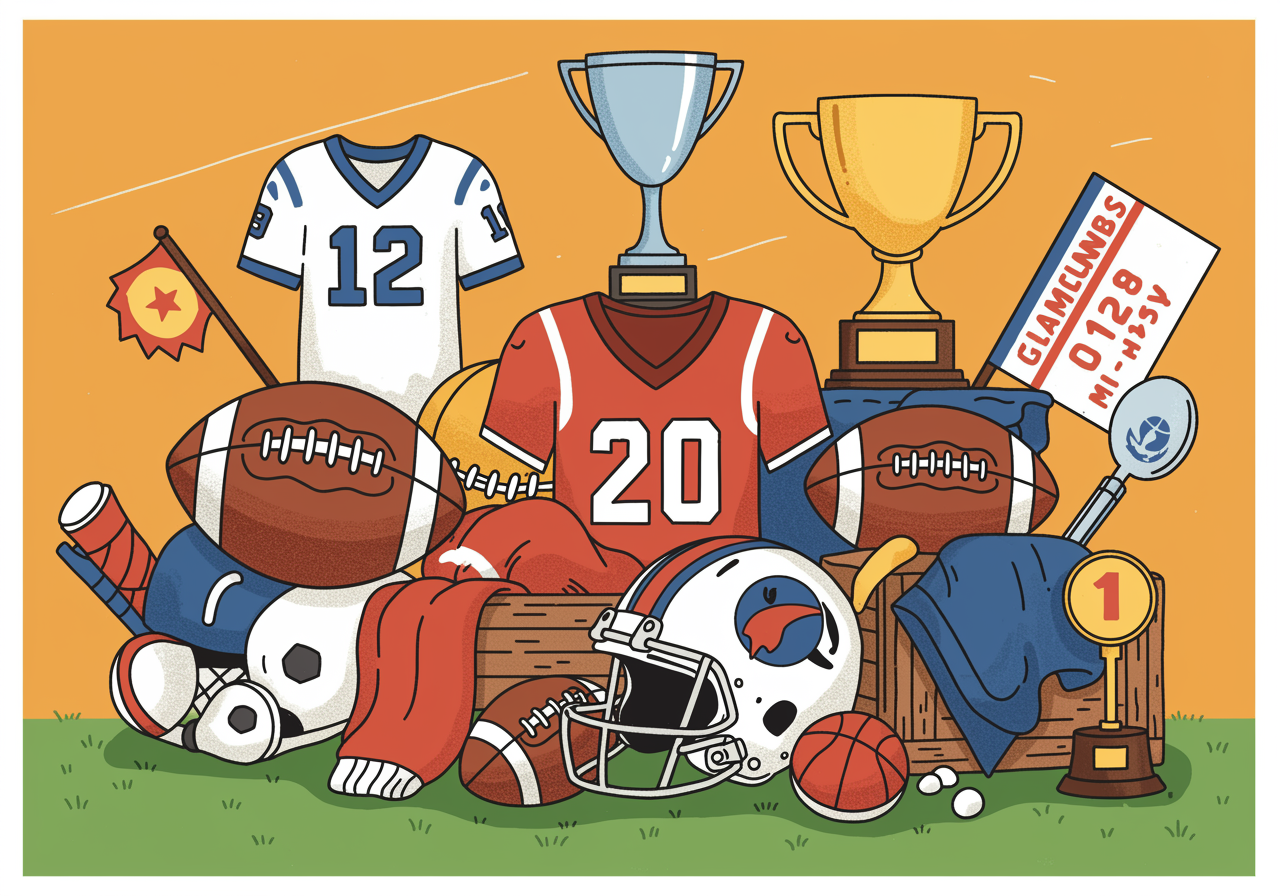Why Sports Rivalries Turn Ordinary People Into Super Fans

The amazing psychology behind why we go wild for our teams
Discover the fascinating science of why sports rivalries create such powerful bonds and what this tells us about human nature.
Overview
Think about the last time you saw someone wearing their favorite team's jersey – their face probably lit up with pride! Sports rivalries tap into something deep in human nature: our need to belong to a group and feel special. When teams like the Cowboys and Eagles face off, it's not just about football – it's about identity, community, and the thrill of being part of something bigger than yourself. Understanding this helps us see why people get so passionate about their teams and how we all seek connection in different ways.

Understand in 30 Seconds
Get up to speed quickly
- Teams = Tribes: Sports teams give us a modern version of ancient tribes – a group to belong to and defend.
- Shared Stories Matter: Fans bond over victories, defeats, and memories that create a shared history stronger than family traditions.
- Competition Builds Identity: Having a rival makes your team feel more special – it's the 'us vs them' effect that makes belonging feel powerful.
- Emotions Are Contagious: When thousands of people cheer together, individual feelings multiply and create an incredible group energy.
Real Life Scenario
Situations you can relate to
Imagine you're at school and there's a big rivalry between your grade and the grade above you during Spirit Week. You and your friends start wearing matching colors, creating chants, and planning strategies to win the competitions. Suddenly, classmates you barely talked to before are now your teammates, high-fiving you in the hallways. You feel excited, proud, and part of something important. That exact same feeling happens with sports teams! When Cowboys fans see another person in a Cowboys jersey, they instantly feel connected – like they're part of the same 'team' even though they've never met. The rivalry with the Eagles makes being a Cowboys fan feel even more special because they have someone to compete against. Have you ever felt this way about a school team, video game clan, or favorite band?

Role Play
Spark a conversation with “what if” scenarios
What if you had to explain to an alien why humans paint their faces and scream at a TV screen during games?
- Role play: Take turns being the confused alien asking questions and the human trying to explain why sports make people so excited.
What if you started a new club at school and wanted to create the same loyalty that sports teams have?
- Role play: Plan out how you'd create traditions, symbols, and friendly rivalries to make club members feel special and connected.
What if you could design the perfect fan experience to make people feel like they truly belong?
- Role play: Brainstorm ideas for chants, rituals, meeting spots, and ways fans could recognize each other in public.
FAQs
Frequently asked questions people want to know
Why do people get so angry when their rival team wins?
It's like when your favorite video game character loses a big battle – it feels personal because fans see the team as part of their identity.
Is it normal for sports to make people cry?
Absolutely! When you're emotionally invested in something, big wins and losses can trigger real tears of joy or sadness.
Why do some people like teams from cities they've never even visited?
Teams represent values, stories, and communities that people connect with, not just geography – like choosing your Hogwarts house!
Examples in the Wild
See how this works day to day
- Research shows that testosterone levels actually rise in fans when their team wins and drop when they lose, proving that watching sports creates real physical responses. (University of Utah Sports Psychology Study)
- After the Philadelphia Eagles won the Super Bowl in 2018, crime rates in the city actually dropped for several days as the community celebrated together. (Philadelphia Police Department)
- Brain scans show that when people watch their favorite team, the same areas light up as when they're looking at pictures of close family members. (Northwestern University Neuroscience Research)
- During the 2020 pandemic, virtual watch parties for Cowboys vs Eagles games had over 50,000 participants, showing how rivalries create community even when apart. (NFL Digital Engagement Reports)
In Summary
What you should know before you start
- Sports rivalries tap into our basic human need to belong to a group and feel special
- Competition makes team loyalty stronger – having a rival makes your team feel more important
- Shared experiences and emotions create bonds between strangers who support the same team
- These feelings are similar to what we experience in friend groups, school teams, and other communities we join
Pro-tip for Parents
You got this!
If your child seems confused by intense sports emotions (either yours or others'), help them connect it to their own passions. Ask them how they feel when someone criticizes their favorite YouTuber, video game, or musician. This comparison helps them understand that we all have things we care deeply about, and sports just happen to be a very visible and social way people express those feelings.

Keep an Eye Out For
Find these examples in everyday life
- Watch how your child reacts to their school's rival games or competitions – it's the same psychology in action
- Notice how friend groups create 'inside jokes' and shared experiences that make them feel special and connected
- Pay attention to how gaming communities or fandoms create the same sense of belonging and rivalry that sports do
Explore Beyond
Look up these related research topics
- How peer pressure works and why we want to fit in with groups
- The psychology of team building and what makes groups successful
- Why humans evolved to work in tribes and how that affects us today